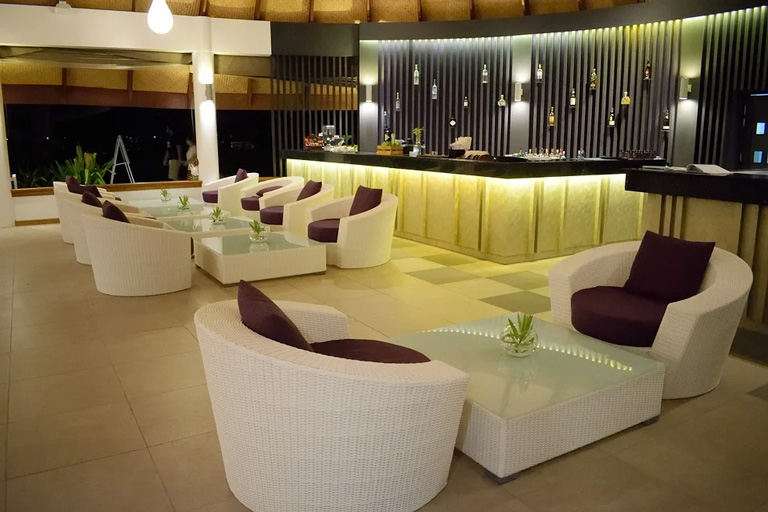July 2020
The COVID-19 pandemic has impacted nearly every industry in unprecedented ways, including tourism and hospitality. Major events have been cancelled. Hotels temporarily closed their doors. Cities have been forced to deal with lost revenue during some of the busiest times of the year.
IUPUI's Becky Liu-Lastres is working to understand how the industry is adapting to these challenges to develop a resilience-based framework that will help prepare for future times of crisis.
“The economic impact on the industry has been dramatic and highly noticeable because so many things shut down fast, and people stopped traveling,” said Liu-Lastres, an assistant professor in the School of Health and Human Sciences. “When you stop receiving tourists, you stop receiving a huge chunk of tourism income, and that has a large multiplier effect because it contributes to the local economy in a lot of ways.”
To fully understand the pandemic’s impact on the industry, Liu-Lastres has been conducting interviews with event planners for many festivals and community-based events of all sizes, including local groups like Visit Indy and some from as far away as Seattle. She wants to understand how their events were impacted and the community implications of these changes.
For larger events, adapting to the pandemic has often meant switching to a virtual format. Liu-Lastres said these larger festivals usually have the resources and flexibility to do so, which is not something smaller, community-based events have typically been able to do.
“For small events that are completely based on the community, it has been really hard for them, and it has been nearly impossible to switch to a virtual event because their major components usually consist of things like performances and booths with vendors,” Liu-Lastres said. “For many of these smaller events, they just had to return money and take a huge financial loss.”
While the economic impact directly affects communities and events, another important aspect is more intangible: people’s perceptions and attitudes.
“Even though tourists’ attitudes have a less direct impact than the economic disruption, it’s so important for events and destinations to think about these perceptions when looking at bouncing back from the pandemic,” Liu-Lastres said. “We need to be thinking about whether people are going to be willing to travel again and whether it will be the same as before, or if there is a ‘new normal’ where tourists now expect preventative measures to be in place.”
The ability for events and destinations to bounce back from the major pandemic disruption is all about resilience – a theme we have heard a lot in recent months in terms of community resilience, destination resilience and individual resilience.
On the organizational side, Liu-Lastres said the event planners she has spoken to have been working hard to come up with new revenue streams and safety protocols. She’s looking at these actions, as well as their adaptability and coping strategies, through a resilience-based framework that will identify measures that have been the most effective.
“Right now, organizations are developing their own resilience mindsets as they reshape strategies to improve their events further,” Liu-Lastres said. “Networking is a key way some cities, such as Indianapolis, have navigated these challenges. Regular meetings have allowed representatives from throughout the industry to discuss and develop industry-wide initiatives to bounce back.”
Larger organizers often have the resources, history and fan base, as well as the support of health departments and governments, to shift their events and recover more quickly. Smaller festivals, though, do not often have the same level of support. Even with risk management strategies in place, they have found themselves wishing they had a better financial reserve prior to the pandemic.
Liu-Lastres said the size of the financial reserve, including emergency funds and government support, effects how quickly the organization will bounce back. She is identifying key measures organizations may have overlooked in the past, but that can be utilized moving forward regardless of size.
This fall, she will launch a nationwide survey to gather additional insight on the industry’s resilience to the pandemic, particularly from the organizational perspective. She will identify what measures have been taken to respond to the pandemic – information that may be utilized to help others improve response efforts.
Her work will ultimately help the tourism and hospitality industry better prepare for the future, by offering guidance and key strategies that can be implemented for their own organization or event.
“We want to tell people that from now on, if you want to be better prepared for a situation like this again, these are some major things you need to look at,” Liu-Lastres said. “They need to be creative and be adaptive, and I hope to provide some examples that others in the industry have utilized to navigate changes brought about by the pandemic.”
Liu-Lastres's project, Developing a resilience-based framework to respond to COVID-19 in Tourism and Hospitality, is one of 17 IUPUI projects to receive funding as part of the OVCR COVID-19 Rapid Response Grant Program.



